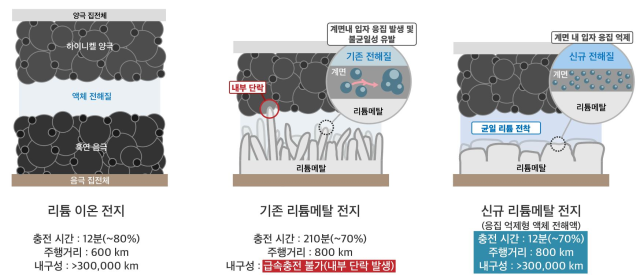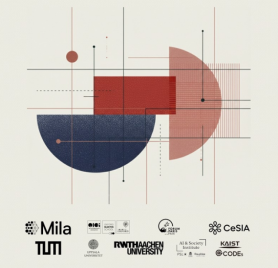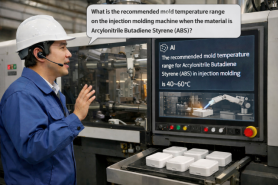
SEOUL, September 04 (AJP) - A joint team of researchers in South Korea has developed a powerful new battery that can charge in just 12 minutes and allow electric vehicles to drive up to 800 kilometers on a single charge. This new battery's performance also lasts for over 300,000 kilometers and could help solve some of the biggest problems in the EV industry.
The Korea Advanced Institute of Science and Technology (KAIST) said on Thursday that a research team led by Professor Kim Hee-tak from KAIST's Department of Biological and Chemical Engineering worked together with South Korean battery maker LG Energy Solution through their joint lab, the Frontier Research Laboratory (FRL). Together, they created a special liquid electrolyte that makes lithium metal batteries work better, charge faster, and last longer.
This new kind of battery replaces the graphite used in regular lithium-ion batteries with pure lithium metal. Lithium metal has the potential to hold more energy, but it also has a serious problem. During charging, tiny tree-shaped crystals called dendrites can grow on the battery’s surface. These dendrites can cause the battery to short-circuit, especially during fast charging, making the battery unsafe or unreliable.
Until now, it has been very difficult to prevent dendrites from forming. But the KAIST-LG research team found the cause: uneven chemical reactions happening on the surface of the lithium metal. They designed a new liquid electrolyte that fixes this problem by keeping the surface reactions more balanced.
This new electrolyte uses negatively charged ions that do not easily stick to lithium ions. Because of this, the battery surface stays smooth and even, which stops dendrites from forming. As a result, the battery can handle fast charging without becoming unstable or dangerous.
The researchers tested their battery by charging and discharging it many times at high speed. Even at a high charging rate of 4C (which equals 8.4 milliamps per square centimeter), the battery performed well for more than 350 cycles. It was able to go from 5 percent to 70 percent charge in under 12 minutes. In another test using a high-energy design with 386 watt-hours per kilogram, the battery reached 80 percent charge in just 17 minutes over 180 cycles.
"This study is a major step forward," said Professor Kim. "We were able to solve one of the toughest problems in lithium metal batteries by understanding how the surface reacts. With this, we have moved past a key barrier to using lithium metal batteries in electric vehicles."
Kim Jae-young, Chief Technology Officer at LG Energy Solution, said, "Our collaboration with KAIST over the last four years through FRL is producing real results. We will continue working together to solve difficult technical challenges and lead the next generation of battery technologies."
The research was published on September 3, 2025, in Nature Energy, one of the highest-ranked scientific journals in the world. The first author of the paper is Dr. Kwon Hyuk-jin, a researcher in KAIST’s Department of Biological and Chemical Engineering.
This research was carried out at the Frontier Research Laboratory, a joint center created by KAIST and LG Energy Solution in 2021 to focus on next-generation lithium metal battery technologies.`
Copyright ⓒ Aju Press All rights reserved.




